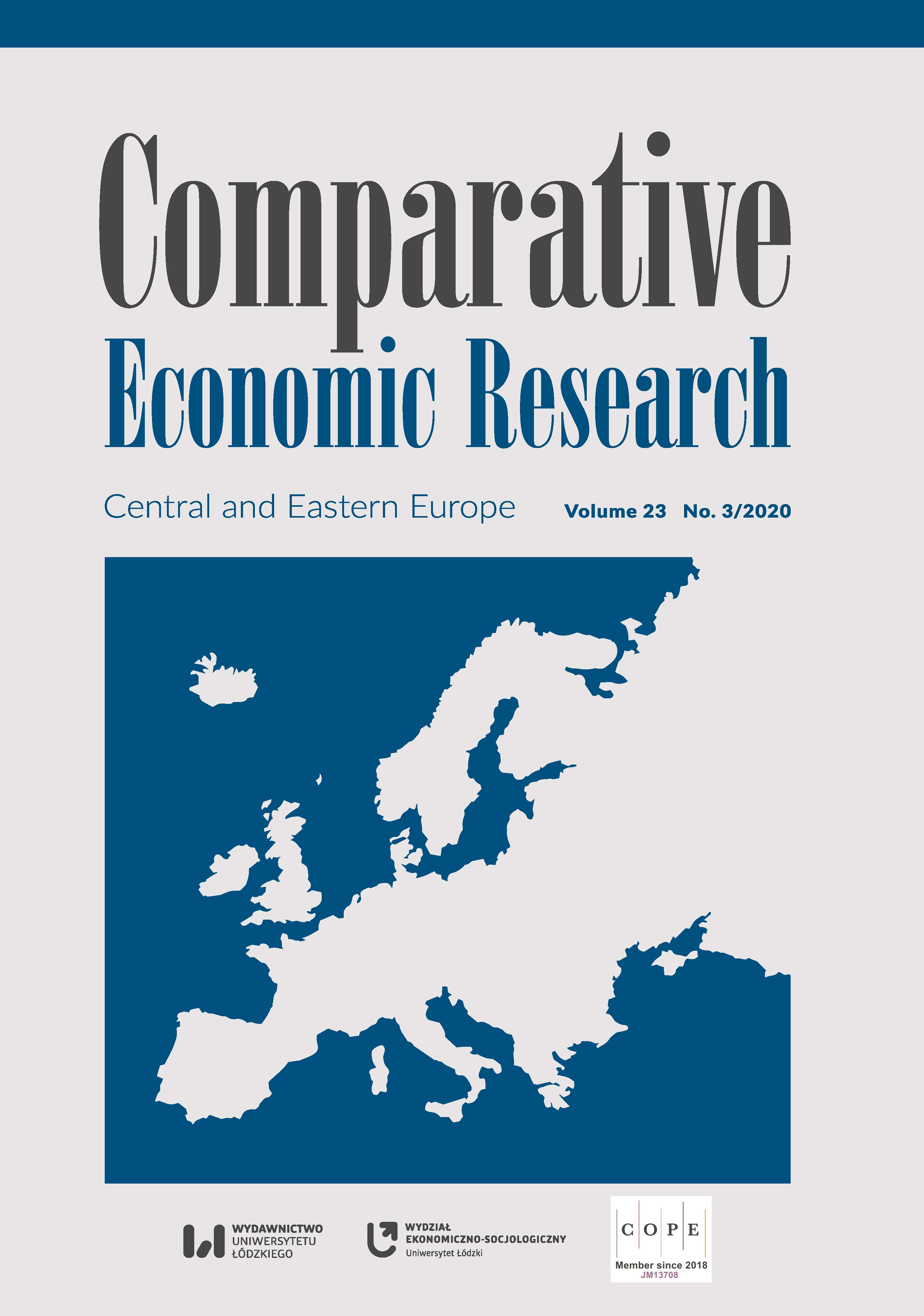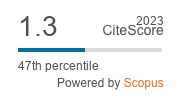E-commerce as a Consequence of Innovation and the Cause of New Innovations for SMEs: the Perspectives of Latvia and Lithuania
DOI:
https://doi.org/10.18778/1508-2008.23.17Keywords:
e-commerce, SMEs, innovation, motivationAbstract
The emergence of new technologies and the expansion of digitalisation have created an opportunity for e-commerce to develop. A supplier and a buyer of goods and services meet in the e-environment and solve their problem without direct contact, which is mutually beneficial. Accordingly, when it comes to globalisation, e-commerce, as a system, becomes an important topic of research in general, and, in particular, it is vital for small and medium enterprises (SMEs), since most enterprises in the European Union (EU) are SMEs. Latvia and Lithuania are EU Member States, and SMEs are dominant in these two Baltic States. The aim of the research is to identify and compare the opinions of producers/sellers and buyers on the positive contribution of e-commerce to date and the problems caused by e-commerce for both sides. The research employed data from Eurostat, OECD and the Central Statistical Bureau of Latvia as well as the authors’ own data from a survey (e-commerce users: suppliers (n=112) and buyers (n=138) of goods and services) conducted in Latvia and Lithuania. An analysis of the statistical data reveals the current objective position of e-commerce in both countries. The proportion of small and medium enterprises involved in this process is increasing. At the same time, the processing of the results of the e-commerce survey enables the authors to see a subjective view of this process, which includes both positive and negative features of both the buyers and the sellers. Identifying problems and comparing the situations in the two neighbouring countries opens the way to find e-commerce development directions and reduce the problems not only economically but also geographically and ethnically, as the objective data on e-commerce are not identical for Latvia and Lithuania, even though the data are positive and only slightly different.
Downloads
References
Berg, J., Furrer, M., Harmon, E., Rani, U., Silberman, M. (2018), Digital labour platforms and the future of work. Towards decent work in the online world. ILO, Geneva. P. 160, https://www.ilo.org/wcmsp5/groups/public/---dgreports/---dcomm/---publ/documents/publication/wcms_645337.pdf (accessed: 15.11.2019).
Google Scholar
Byungjoon, Y., Moonkyoung, J. (2019), A bibliographic survey of business models, service relationships, and technology in electronic commerce, “Electronic Commerce Research and Applications”, 33 (2019), 100818. https://doi.org/10.1016/j.elerap.2018.11.005
Google Scholar
DOI: https://doi.org/10.1016/j.elerap.2018.11.005
Digital Transformation of Business Models – Best Practice, Enablers, and Roadmap. “International Journal of Innovation Management”, 21 (8), (December 2017) 1740014 (17 pages). https://doi.org/10.1142/S136391961740014X
Google Scholar
European Commission (2010), Europe 2020: a European Strategy for Smart, Sustainable and Inclusive Growth. Brussels. http://ec.europa.eu/eu2020/pdf/COMPLETENBARROSO007-Europe2020-EN-version.pdf (accessed: 5.12.2019).
Google Scholar
European Commission (2014), Digital Economy and Society Index (DESI), https://digital-agenda-data.eu/datasets/http-semantic-digital-agenda-data-eu-dataset-lead-indicators/indicators (accessed: 24.11.2019).
Google Scholar
European Commission (2017a), Digital Single Market strategy: – Mid-term review, https://eur-lex.europa.eu/content/news/digital_market.html (accessed: 5.01.2020).
Google Scholar
European Commission (2017b), Digital Economy and Society Index (DESI). Methodological note, http://ec.europa.eu/information_society/newsroom/image/document/2018-20/desi-2018-methodology_E886EDCA-B32A-AEFB-07F5911DE975477B_52297.pdf (accessed: 30.11.2019).
Google Scholar
European Commission (2018a), European Innovation Scoreboard. International Market. Industry. Entrepreneurship and SMEs, https://ec.europa.eu/growth/industry/innovation/facts-figures/scoreboards_en (accessed: 27.12.2019).
Google Scholar
European Commission (2018b), Countries performance in digitisation, https://ec.europa.eu/digital-single-market/en/countries-performance-digitisation (accessed: 14.12.2019).
Google Scholar
European Ecommerce Report (2018), European ecommerce association, https://www.scribd.com/document/383111825/European-Ecommerce-Report-2018 (accessed: 12.01.2020).
Google Scholar
Eurostat regional yearbook (2018), https://ec.europa.eu/eurostat/publications/statistical-books/regional-yearbook (accessed: 17.12.2019).
Google Scholar
Global Forum on Agriculture (2018), Digital technologies in food and agriculture: reaping the benefits. 14–15 May 2018, OECD Conference Centre, Paris. http://www.oecd.org/tad/events/Background%20note_Website.pdf (accessed: 24.11.2019).
Google Scholar
Grass, K., Weber, E. (2017), EU 4.0 – The debate on digitalisation and the labour market in Europe, IAB Discussion Paper 201639, https://ideas.repec.org/p/iab/iabdpa/201639_en.html (accessed: 6.01.2020).
Google Scholar
Improving Market outcomes. Enhancing the Position of Farmers in the Supply Chain (2016), Report of the Agricultural Markets Task Force, EC, Brussels. https://ec.europa.eu/agriculture/sites/agriculture/files/agri-markets-task-force/improving-markets-outcomes_en.pdf (accessed: 6.01.2020).
Google Scholar
Lee, Y.J., Ha, S., Johnson, Z. (2019), Antecedents and consequences of flow state in e-commerce, “Journal of Consumer Marketing”, 36 (2), pp. 264–275. https://doi.org/10.1108/JCM-10-2015-1579
Google Scholar
DOI: https://doi.org/10.1108/JCM-10-2015-1579
Pytkowska, J., Korynski, P. (2017), Digitalizing Microfinance in Europe. Research paper. Microfinance Centre, Poland. https://www.european-microfinance.org/sites/default/files/document/file/Digitalization-research-paper.pdf (accessed: 16.11.2019).
Google Scholar
Raisová, M., Ćurpová, J. (2014), Economic growth-supply and demand perspective, “Economics and Finance”, 15, pp. 184–191, http://www.sciencedirect.com (accessed: 6.11.2019).
Google Scholar
DOI: https://doi.org/10.1016/S2212-5671(14)00476-6
Schallmo, D., Williams, Ch.A., Boardman, L. (2017), Digital Transformation of Business Models – Best Practice, Enablers, and Roadmap, “International Journal of Innovation Management”, 21 (8), (December 2017) 1740014 (17 pages). https://www.worldscientific.com/doi/pdfplus/10.1142/S136391961740014X (accessed: 6.11.2019).
Google Scholar
DOI: https://doi.org/10.1142/S136391961740014X
Schill, M., Godefroit-Winkel, D. (2019), Consumer segments in the smart environmental objects market, “Journal of Consumer Marketing”, 36 (2), pp. 317–332. https://doi.org/10.1108/JCM-12-2017-2472
Google Scholar
DOI: https://doi.org/10.1108/JCM-12-2017-2472
Subramaniam, M., Iyer, B., Venkatraman, V. (2019), Competing in digital ecosystems, “Business Horizons”, 62, pp. 83–94. https://doi.org/10.1016/j.bushor.2018.08.013
Google Scholar
DOI: https://doi.org/10.1016/j.bushor.2018.08.013
TUAC (2017), Digitalisation and the Digital Economy. Trade Union Key Messages. http://www.tuac.org (accessed: 27.11.2019).
Google Scholar
Verhoef, P. (2012), Customer based marketing strategy, https://www.elgaronline.com/view/9781849800983.00017.xml (accessed: 7.12.2019).
Google Scholar
Waas, B., Pavlou, V. and Gramano, E. (2018), Digital economy and the law: introduction to this Special Issue, “Work organisation, labour & globalisation”, 12 (2), Winter 2018, pp. 7–11. https://doi.org/10.13169/workorgalaboglob.12.2.0007
Google Scholar
DOI: https://doi.org/10.13169/workorgalaboglob.12.2.0007
Westlund, H., Andersson, M., Karlsson, Ch. (2013), Creativity as an integral element of social capital and its role for economic performance, “CESIS Electronic Working Paper Series”. Paper No. 330, https://static.sys.kth.se/itm/wp/cesis/cesiswp330.pdf (accessed: 20.10.2019).
Google Scholar
Downloads
Published
How to Cite
Issue
Section
License

This work is licensed under a Creative Commons Attribution-NonCommercial-NoDerivatives 4.0 International License.











